Apple Music misses a beat

Yesterday, I joined the 61 percent. The figure represents the people who, in a MusicWatch survey of 5,000, had turned off auto-renew on their free Apple Music trial, which for all ends September 30. Unless something really big comes out of this week's media event, where new iPhones could debut and iOS 9 and OS X El Capitan receive release dates, I will listen elsewhere. For now, I will stream higher-fidelity tracks from Tidal, and expand my musical horizons at services like SoundCloud.
Strange thing: I don't dislike Apple Music. Curated playlists are "frak me" good. Family pricing, $14.99 per month, is very reasonable. The library is voluminous; if I want to listen to it, Apple Music likely has it. Then there is the benefit of easy access to my own library of about 14,000 tracks alongside juicy fruit picked from the orchard.
Insanity! Get Nexus 6 for $350
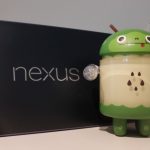
What the frak? Is it because of the presumed, imminent launch of Apple's successor to iPhone 6 or 6 Plus? Are rumors about Google launching new Nexus devices near month's end true -- and it's better to clear out excess inventory now? Or is Amazon being Labor Day weekend Amazon?
Motorola-made, Google-branded Nexus 6 is on big sale today from the retailer's U.S. store. Last night, I oogled at the phablet for $499.99, which already was a hefty discount. This morning I rolled out of bed to see $349.99. Both prices are for the 32GB model. Double the memory and pay $399.99. Yesterday: $549.99. Surely the price and supply can't last. That's helluva good deal -- and for both colors: Cloud White and Midnight Blue.
Acer pulls down the top on new convertibles, running Chrome OS and Windows 10
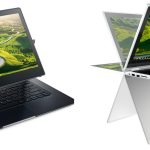
Today, at IFA in Berlin, Acer unveiled its first convertible Chromebook and updated the Windows counterpart, which gets 6th-generation Intel Core processors and USB 3.1 Type-C port. The two computers join a surprising assortment of new gear, including gaming notebooks and tablets and smartphones.
The Chromebook R 11 Convertible comes in consumer and commercial models. Base specs: 11-6.-inch display (1366 x 768 resolution); 1.6GHz Intel N3150 or N3050 Celeron processor; 2GB or 4GB RAM, 16GB or 32GB SSD; Intel HD graphics; webcam; USB 3; WiFi N; and Chrome OS. Weighs 1.25kg (2.76 pounds). There are four modes of operation, depending on positioning: display, laptop, pad, and tent.
Acer unleashes Predator on gamers
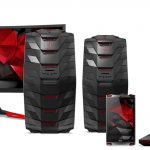
It's IFA Berlin, and Acer means business about play, unveiling new desktops, laptops, monitors, and tablets in its gaming series. The Predator G3 and G6 PCs get 6th-generation Intel Core processors and new thermal systems. The Predator 15 and 17 notebooks get 6th-gen processors and updated fan designs.
New monitors are available in 27, 28, or 35 inches. The new 8-inch tablet features FHD display and Intel Atom x7 processor.
Collapse of the iPhone empire
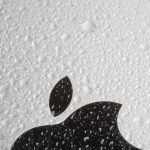
On September 9, Apple will hold a media event, where, presumably, the next-generation iPhone(s) will be unveiled. The company announced new handsets the same date last year, the 10th in 2013, and the 12th in 2012. But as the big reveal approaches, shadows rise over iPhone's future: China's slowing economy; smartphone saturation in core markets; lower selling prices in growth geographies; the end of cellular carrier subsidies in the United States, and, most serious of all, the "good enough problem".
iPhone rode a perfect storm of success, raising Apple's fortunes like a tsunami crashing down on competitors. This fact cannot be emphasized enough to illustrate how the bitten fruit logo company's fortunes could fall as quickly, and as dramatically, as they rose. All the while, Android grows from swell to monsoon.
I hate autocorrect

I must apologize to Art Alexakis, lead singer for Everclear. In a personal post last night observing his role as a tattoo artist in movie "Wild", his name is misspelled. Funny thing, so to get it right, I copied and pasted from the web into the WordPress editor. Yet somehow when published, and I missed, his name appeared as Alexis. My thanks goes to Scott Bell, who pointed out the error in a Google+ comment.
It's strange how tech meant to be beneficial gets in the way. More mistakes appear in my stories because of autocorrect than I make myself. The pattern is consistent: I will write, nix autocorrect's changed misspelling, but later edit something else in the sentence. Word changes! As a long-time writer and editor, I revise constantly until publishing—and afterwards, too. The spelling errors I miss most often typically are the ones made for me during spot edits.
When size matters, Acer Chromebook 15 is big [Review]
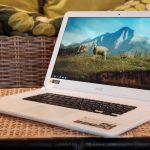
I am not a fan of overly-large laptops, but if I were to buy one, Acer's 15.6-inch monster would be among my top choices. The Chromebook packs in lots of value, which first and foremost is 1080p resolution to match the large screen, a benefit that is atypical for the price and size class. Screen brightness is no match for the Toshiba Chromebook 2, but the matte finish compensates for dimness by dramatically reducing glare. Meanwhile, the IPS display gives great viewing angles.
The point: Acer doesn't just offer bigger, but better, among the overall Chromebook category, where dim TN screens are standard fare. That also can be said of competing Windows laptops, where with same size screen in the price range, or even more costly, resolution typically tops out at 1366 x 768. Chromebook 15 is 1920 x 1080. By more than size, the display is a big benefit.
Why would Dell sell a business Chromebook that competes with Office and Windows 10?

The strangest, and largely overlooked news, coming out of the tech sector this week is Dell's Microsoft betrayal. This isn't the first time that the PC maker strayed. Linux joined the product stable long ago, and last year an educational Chromebook debuted. But this newer and larger model, which will be available September 17, raises question: WTF?
Dell's core PC market is business—small, large, and everything between. Windows, and that smattering of Linux, is core, and longstanding loyalty to Microsoft's application stack. But the Chromebook 13 announcement, as positioned by the OEM and Google, is all about the competing cloud app stack. Interestingly, selling prices rival Windows laptops, which is another head scratcher: $399 to $899, depending on configuration.
Yikes! Apple laptop revenue share exceeds Windows PCs
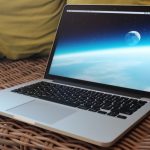
Measured as sales through the U.S. consumer retail channel, Macs reached rather shocking milestone during first half 2015, according to data that NPD provided to me today. Yes, you can consider this a first, and from lower volume shipments. By operating system: OS X, 49.7 percent; Windows, 48.3 percent; Chrome OS, 1.9 percent. That compares to the same time period in 2014: OS X, 44.8 percent; Windows, 53.1 percent; Chrome OS, 2.1 percent. So there is no confusion, the data is for U.S. consumer laptops.
While data junkie journalists or analysts often focus on unit shipments, revenues, and subsequently profits, matter much more. Looked at another way, Mac laptop revenues rose by 10.9 percent during the first six months of 2015, year over year, while Windows PCs fell by 9 percent, and Chromebooks contracted by 9.5 percent.
Alphabet's ABC is Google's XYZ

I predict that the innovation of the year will go, not to a tech product, but to Google's creation of a new company: Alphabet. The search and information giant that disrupts so many other companies on and off the Internet essentially disrupts itself. By doing so—divesting the core, established business from future research and inventions—cofounders Larry Page and Sergey Brin unshackle weights dragging growth.
To recap: Page announced the dramatic change after the market closed yesterday. Google becomes secondary to Alphabet, which will hold a collection of related entities. Page hands over Google chief executive reigns to Sundar Pichai, while becoming CEO of the new entity. Brin is president. Can we call him letterhead instead of figurehead? :)
iPhone 6 Plus balances benefits [Review]

Sometime within the next few weeks, Apple should announce successors to iPhone 6 and 6 Plus, and my review of the latter device is long overdue. Let's get to it finally and present the key finding first: If size matters, as in you want a phone with larger screen but that doesn't feel humongous, the 5.5-inch iPhone 6 Plus is a worthy choice. By measures that matter most—benefits from apps, calling, camera, data, performance, screen, and storage—the phablet is best of class.
As expressed in my iPhone 6 review, I regretted not buying the larger device after handing it. The Plus is big, but not overly large for my tastes. Hell, I bought Motorola-made and Google-branded Nexus 6 in January 2015 to replace iPhone 6; the screen is even bigger than Plus, at whopping 6 inches. I gained great value using either of the larger handsets, but gave up one for the other.
Outlook for Apple Watch is the future of Microsoft
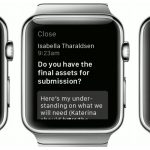
Satya Nadella is a man with a formidable challenge. Microsoft CEO's predecessor, Steve Ballmer, squandered the company's mobile fortunes. From smartphone platform leader a decade ago, the software-and-services giant is a category also-ran in 2015. Microsoft has no independent mobile platform future. The war is over. There remains this: Making alliances with old enemies to preserve existing territory, while using the foothold to reach into new frontiers.
Made available August 5th, Outlook for Apple Watch is a very smart move and metaphor for what went wrong on Microsoft mobile platforms and what has to go right to preserve and extend the legacy applications stack. While Windows 10 makes its way to Lumia devices, the future is Android and iOS and how the company supports them with contextually meaningful cloud-connected apps and services.
5 things I don't like about Apple Watch
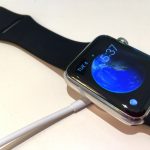
About two weeks ago, I shared how Apple Watch tickles my fancy. From likes, we go to dislikes, and keeping with the other I purposely limit the number to five. Quick recap: I bought the aluminum model on June 18, 2015 from the local Apple Store. Seven days later, I exchanged for the stainless steel variant. Except to charge or to shower, I've worn it constantly since.
Broadly, my feelings about the smartwatch are mixed. The delivered benefits are excellent, but they aren't enough to justify the lofty price. If not for using MacBook Pro and iPhone 6 Plus this summer, Android Wear and iOS incompatibilities, or the promise of watchOS 2 coming early autumn, I would not have purchased the device. I'm not dissatisfied with Apple Watch, but want more from it. As I explained on July 18, the measure of success or failure isn't sales but returns. I kept mine. How many early buyers didn't?
I bought a Windows 10 PC, but not for me
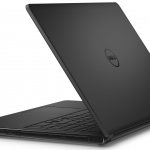
My brother-in-law's Dell laptop, so old it shipped with, and still had, 1GB RAM, died last week. He emailed asking my buying advice about a Windows 7 replacement. Reasoning: He would move up from XP. But his dad stepped in, offered to pay, and I, acting as agent (being the more knowledgable about computers), suggested $400 budget. By coincidence, shopping day coincided with Windows 10's launch.
Timing couldn't be better, with the rush of new 10s, discounts to clear out old inventory, and typical back-to-school season sales. I expected to grab good gear. Choosing for my brother-in-law is quite different than for myself. I prefer something smaller and lighter, with high-resolution screen. He wanted a larger screen (we agreed on 15.6 inches), full-size keyboard, DVD player, and WiFi. Meaning: Roomy and backward-compatible with what he has already. I confidently looked for something within budget.
Will you upgrade to Windows 10?

Microsoft officially launches its newest operating system tomorrow. OEMs like Acer, Lenovo, and Dell are shipping computers loaded with Windows 10, while some of you can claim free upgrades now. But will you? We want to know, as perhaps do other readers considering whether or not to make a go.
To be brutally honest, I seriously considered using headline: "Will you upgrade to Windows Death?" Because: if Windows 10 doesn't succeed it will be the last viable version given the success of Android or iOS; shipments of both mobile platforms either match or exceed Windows computers; and Microsoft's advancing cloud strategy signals the end of Windows as we have come to know it, as the operating system evolves and updates in a manner more like Chrome OS than the big release delivered every few years. Then there is the criticism, much of it in BetaNews comments, that makes upgrading to Windows 10 seem like Death.
Joe's Bio
Joe Wilcox is BetaNews executive editor. His motto: Change the rules. Joe is a former CNET News staff writer, JupiterResearch senior analyst, and Ziff Davis Enterprise Microsoft Watch editor.
Ethics StatementBetaNews, your source for breaking tech news, reviews, and in-depth reporting since 1998.
© 1998-2025 BetaNews, Inc. All Rights Reserved. About Us - Privacy Policy - Cookie Policy - Sitemap.
